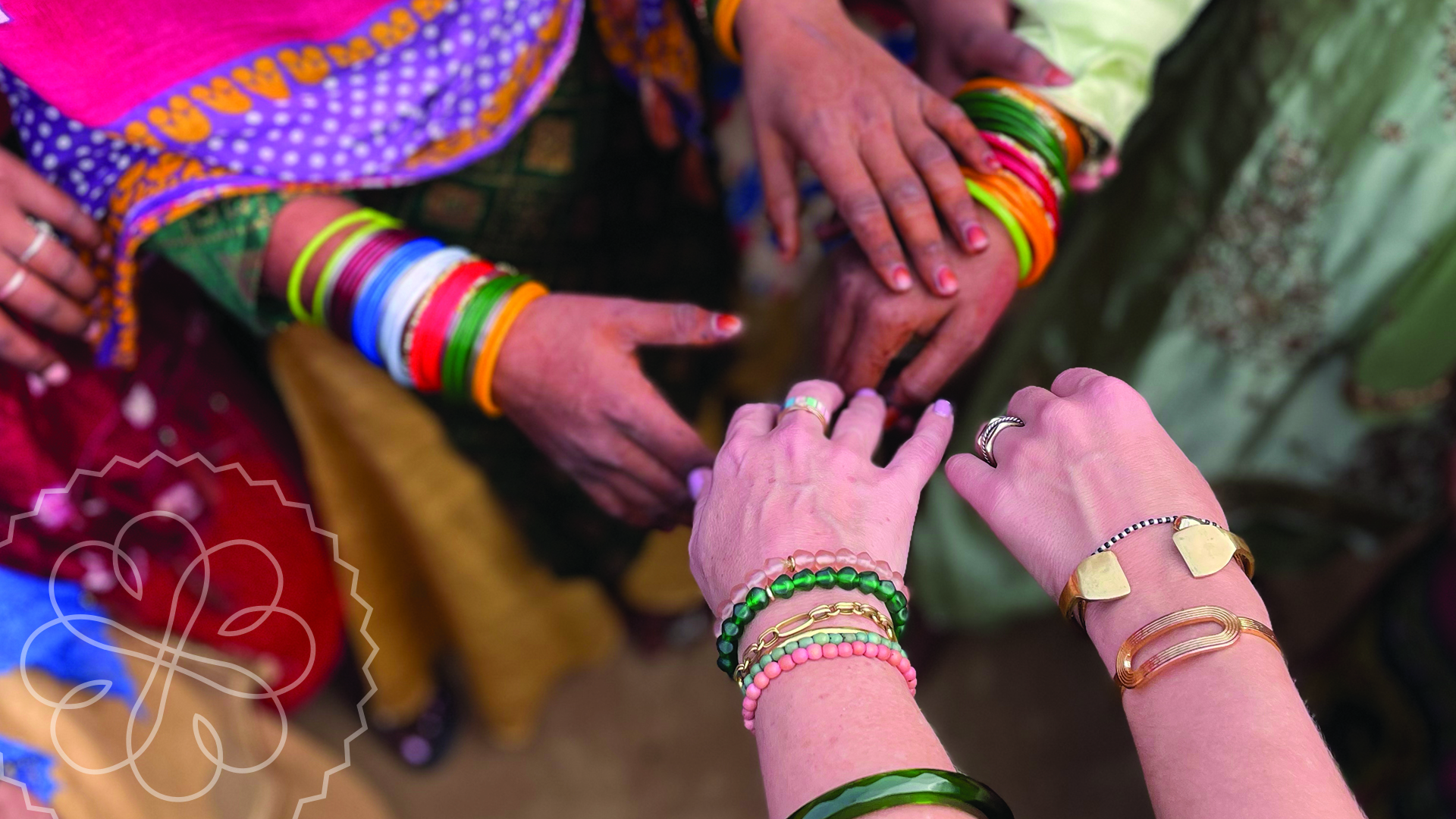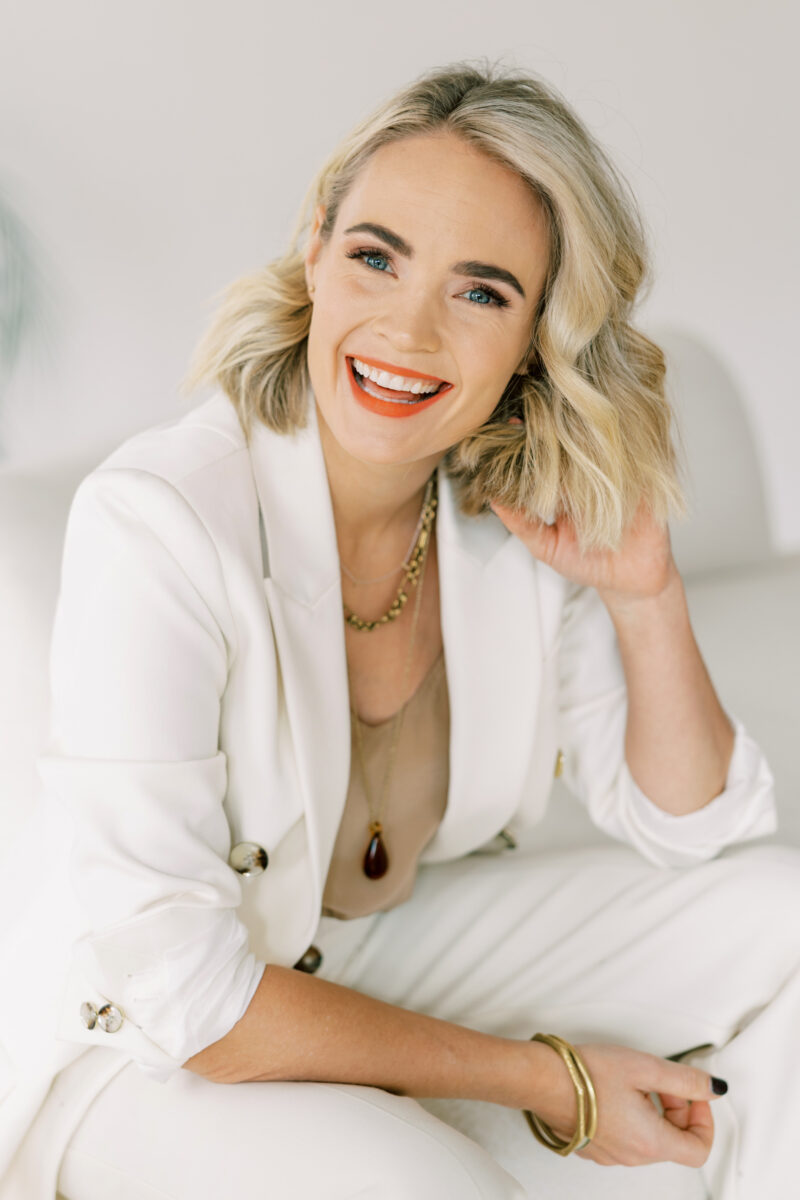
Is Loneliness a New Struggle for Women in the Workplace—Or Has It Always Been There?
Liz Forkin Bohannon, founder of Sseko Designs and the author of Beginner’s Pluck, has been an active voice on loneliness for the past few months. She joins us this month to talk about the sweeping effects of loneliness on American society and what we should actually be focusing on to overcome the effects of loneliness.
You can listen to this conversation with Liz on our podcast, Work, Love, Pray! Listen below or click here to find your preferred listening platform.
Has loneliness always been an issue, or has it grown to be a bigger problem within the last couple of years?
I would say both. I think some of the things that we as a culture are really good at center around independence. There are really beautiful parts of that, but in the last 10 to 15 years, we actually saw the most stark trend happening. Not at all coincidentally, this trend began around 2012, when smartphone usage and social media usage hit about 50%.
That pivotal moment in time is when you start to see a really steep upward curve towards isolation, loneliness, and less time gathering with friends and loved ones. And then, of course, the pandemic exasperated that, but honestly, not as much as you might want to believe. I think a lot of people blame the rise of loneliness on Covid and on quarantine. But if you really look at the data, you actually see that the most stark inflection point for loneliness was about a decade before Covid hit. There were things already happening in our culture that, of course, the quarantine era really exasperated or accelerated, but I think there were deeper design and cultural choices we’ve been making for decades now that have led us to where we are today with loneliness.
How have you dealt with loneliness in your life?
I am not nearly as extroverted as people probably think I am! I put off an extrovert energy, but the reality is that it is so important to me to have quiet solitude time in order for me to be really healthy. I often joke that I feel like I have what I refer to as pre-social anxiety. When I am in a space or at an event, I’m generally pretty energized and need to recharge after it. But about 95% of the time, before a social gathering. I do not want to go. I would much rather be in my silk pajamas, in my bed, reading a book. Committing to being social has felt a lot like a practice, like exercise or eating healthy can feel like.
I actually think that if we changed our mentality around friendship and talked about socializing more like we talked about other things that we know are good for us, we would actually be very well served as a society. Something has happened specifically in our culture around relationships and has resulted in an expectation that we have on our partners and loved ones that is completely unrealistic. Those people will not fulfill our every social and psychological need. I think this unfair expectation is greatly contributing to things like the divorce rate in our country. Even with our friendships, we kind of have this idea that it’s this magical, mystical thing. We grew up watching Friends and saw this amazing group of friends in New York City, but we never really understood how’d they get there.
Unfortunately, I think we’ve gone too far as a society and we’ve now gotten to a point in our culture where we say, ‘If it isn’t easy, doesn’t serve you, or doesn’t feel good right away, don’t do it.’ We go home and watch Netflix and do self-care and drink wine in the bathtub. That is a reality that I want to challenge because I don’t think it’s real. I think friendship is like every other thing in life: it is good, but it is hard, and you have to commit to it, and you have to be disciplined, because there are going to be times where you don’t want to show up.
In the long run, I want to be a good friend, I want to have a strong social network, and I want to be someone that other people can depend on. So I’ve got to put on my big girl pants and I gotta do this thing, even though it can feel a little bit obligatory. Our culture has gotten so sensitive towards anything that feels obligatory and that makes me nervous. In a strong society where people are cared for and supported and where people are healthy, there is a base level of obligation to one another. If we started thinking about friendship more like that, I think we would engage it differently in a way that would make us a lot more successful in combating loneliness than the kind of current narrative that we have around it right now.
Does your personality type dictate when and how you’re going to feel true loneliness?
Dictate? Probably not. Influence? Certainly. I want to make a distinction between loneliness and solitude. Loneliness is actually the painful psychological state that arises when you have the feeling of ‘I don’t have the support that I need to survive and or thrive.’ Solitude is being alone, like the physical act of isolating yourself, and is actually an ingredient to a healthy life. For some of us, solitude comes very naturally, almost like an instinct. For some people, solitude is terrifying and they avoid it at all costs.
You need to answer this question for yourself: do you have the support that you need on a regular basis to thrive? What that takes is going to be different for everyone. Social science does show that there are some averages when it comes to social circles. We have like our best people, our closest confidants, and that circle can contain anywhere between one and four people. Then there’s the circle of intimate authentic relationships with about 12 people inside. The ‘acquaintances’ social circle is the largest and can have a range of 25-125 people in it.
The capacity for really close friendship and what you’re able to give and receive can be different from person to person. Studies do show that even one close friend that you feel like you can truly share openly and authentically with makes an incredible difference in your psychological health. When it comes to fighting the type of loneliness that we’re fighting in America right now, friendship plays a really unique part in the fight, but friendship is also the thing that we’ve seen the swiftest decline in.
Overall, we’ve seen a pretty big increase in time spent alone. In 2012, the average American was spending about six and a half hours a week with their friends. Today, just a little bit more than a decade later, that statistic has decreased by over 60% and now the average American is spending less than two hours a week with friends. That is an enormous behavioral shift that we have seen in a relatively short amount of time and it carries a huge impact, like:
- 66% of Americans would say that they struggle with loneliness.
- 70% of people in leadership positions would say they are regularly feeling unsupported or alone.
- For the first time in recorded human history, young people in America are reporting that they’re more lonely than the sick or the elderly, which have historically always been the loneliest populations.
- Today, men specifically are five times lonelier in friendship than they were in 1990.
- Only one out of every five moms would say that they have the support and community that they feel like they can trust with their faults or weaknesses.
I see these memes online all the time where the joke is that ‘it takes a village to raise a child’ but the mom is looking around and asking, ‘So where’s my village? Is there a 1-800 number I can call?’ These memes always garner so much attention because so many people identify with it, but the truth is there is no number to call. It’s not a thing that you can just decide you’re in need of so you dial up your community and then all of a sudden there’s going to be people there to support you. Like every other good thing in your life, if you want it to exist, you have to take it seriously. You have to prioritize it, you have to commit, and you have to sacrifice for it and lean in even when it’s uncomfortable.
That’s the narrative shift that I want to be a part of: how we talk about relationships and friendships in America. The Surgeon General of the United States issued an 80-page advisory naming loneliness as the single biggest threat to mental and physical health for Americans right now. My hope is that this opens our eyes as a society. If the Surgeon General says this is a dire situation, we as a culture need to lean in and take combatting loneliness more seriously.

Liz Forkin Bohannon is the founder of Sseko Designs and the author of the book Beginner’s Pluck: Build your life of purpose, passion and impact now.
Liz graduated from the University of Missouri with a Master’s degree in Journalism. In 2008, she moved to Uganda where she met an incredible group of talented young women who were struggling to finance their higher education.
After traveling the country by motorcycle to find raw materials and learn how to produce footwear by hand, Liz hired three young women and started Sseko Designs. Since then, Sseko Designs has grown from three women making sandals together under a mango tree, to an international fashion brand that provides employment, educational opportunities, and entrepreneurial training to hundreds of women in East Africa and across the globe.
Using her unlikely story of a journalist-gone-shoe-maker, Liz shares her passion for social entrepreneurship, risk & failure, purpose and the power of community. Recently, Sseko Designs merged with Noonday Collection to become the world’s leading socially-conscious fashion brand, powered by social selling.
Liz has been featured in dozens of publications including Good Morning America, ABC’s Shark Tank, Vogue Magazine, Redbook Magazine, O Magazine, Inc, Fortune and others. Among other notable honors, Liz was recently named a top three Transformation Leader by John Maxwell and Bloomberg Businessweek named Sseko as a top social enterprise. Forbes named Liz one of the top 20 public speakers in the U.S. Liz’s powerful, disarmingly authentic, and witty voice captivates and inspires her audience.
She now lives in an intentional community in Portland, Oregon, with her husband Ben and their three young sons.